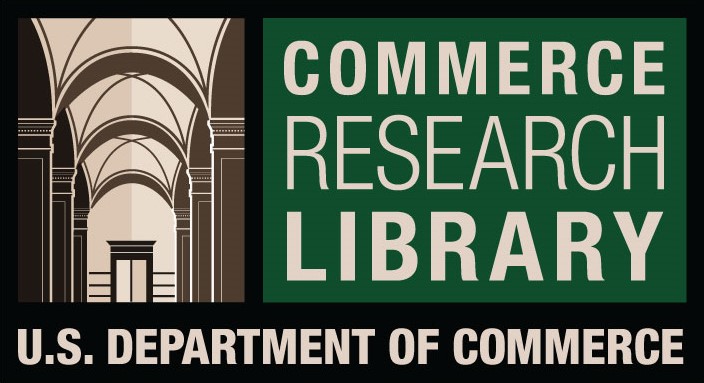POLITICAL CULTURE STRATEGY IN CONFIGURATION OF ALTERNATIVE POLITICAL ELITES
DOI:
https://doi.org/10.61841/vxyt9g17Keywords:
politics, political culture strategy, political elitesAbstract
This article aims to describe the political phenomenon clan-based politics with an imbalanced contestation process and the right strategy of political culture to issue alternative of political elites in Polewali Mandar which is not clan oriented. The research method used was qualitative phenomenology with epoche and eidetic. Epoche in phenomenology is a conceptualized assessment which must be postponed or given brackets until that phenomenon talks for itself while eidetic is the understanding of meaning always obtained and only through the understanding of expressions. The cultural strategy in the political arena of Polewali Mandar is a sequence of efforts done by politicians as alternatives for decreasing clan political power. Data in the field show there are two cultural strategies being able to reduce 3M Clan political power. Those two strategies are the reinforcement of medium intellectual group networks and strengthening the cohesiveness of alternative politicians. This research gives a contribution towards the implication of sociology theory with characteristics such as deterministic-dualism and the relation of this research finding towards bourdieau’s sociology theory, and the implication towards the development of sociology knowledge. This research gives a new perspective about the phenomenon of elite political configuration especially in the field of sociology and strategy of political culture.
Downloads
References
1. Barker, Chris. (2009). Cultural Studies Teori dan Praktek. Alih Bahasa oleh Nurhadi.Yogyakarta: Kreasi Wacana
2. Bathoro, Alim. (2011). Pernagkap Dinasti Politik Dalam Konsolidasi Demokrasi. Jurnal Fisip UMRAH. Vol 2 (2) : 115-125
3. Bourdieu, Pierre. (1990). Outline Of A Theory Of Practice. Cambridge: University Press.
4. Bourdieu, Pierre. (1990). The Logic of Practice. Stanford: Stanford University Press.
5. Capriati, Rossy. (2013). Strategi dan Perjuangan Pedagang Kaki Lima (PKL) di Kelurahan Pasar Pagi Kota Samarinda. eJournal Sosiatri-Sosiologi. Vol 1(2): 36-50
6. Dhavamony, Mariasusai. (1995). Fenomenologi Agama, Kanisius , Yogyakarta.
7. Harjanto, Nico. (2011). Politik Kekerabatan dan Institusionalisasi Partai Politik di Indonesia. Analisis CSIS. Vol 40 (2) : 138-159
8. Harker, Richard; Mahar, Cheelan; Wilkes, Chris. Terj. (2009) (Habitus X Modal) + Ranah = Praktik. Yogyakarta. Jalasutra.
9. Hidayat, Rakhmat. (2008). Kurikulum sebagai Arena Kontestasi Kekuasaan: Konseptualisasi Gagasan Michael Apple hingga Pierre Bourdieu. Komunitas Vol 3 (2) : 25-44
10. Kaufmann, Peter. (2005). Middle-Class Sosial Reproduction: The Activation and Negotiation of Structural Advantages. Sociological Forum, Vol. 20 (2) : 245-270
11. Lataruva, Eisha. (2004). Pelaksaaan Strategi Aliansi dalam Budaya Perusahaan yang Berbeda. Jurnal Studi Manajemen dan Organisasi. Vol 1 (1) : 1-9
12. Lantis, Jeffrey S. (2002). Strategic Culture& National Securuty Policy. UK. Blackwell Publishing
13. Lizardo, Omar. (2004). The Cognitive Origins of Bourdieu’s Habitus. Journal for the Theory of Sosial Behaviour Vol 34 (4) : 375-401
14. Miles, Matthew dan Huberman, A. Michael. (1992). Analisis Data Kualitatif: Buku Sumber Tantang Metode-Metode Baru. Jakarta:UI Press.
15. Nasution, (2002). Metode Research: Penelitian Ilmiah, Jakarta: PT Bumi Aksara
16. Permana, Yogi Setya. (2010). Kontestasi Abangan-Santri Pasca Orde Baru di Pedesaan Jawa. Jurnal Ilmu Sosial dan Ilmu Politik. Vol 14 (1) : 63-82
17. Peursen, C.A. Van. (1975), Strategi Kebudayaan, Jogyakarta:Kanisius.
18. Ritzer, George dan Douglas J. Goodman. (2003). Teori Sosiologi Moderen. Prenada Media: Jakarta
19. Robet&Rozak. (2011). Proses Sosial sebagai Medium Pembelajaran : Konseptualisasi Habitus untuk Sosiologi-Pedagogis. Jurnal Sosialita Vol. 9 (1) : 77-88
20. Sulistyaningtyas, Tru. Jaelani, Jejen&Waskita, Dana. (2012). Perubahan Cara Pandang dan Sikap Masyarakat Kota Bandung Akibat Pengaruh Gaya Hidup Digital. Jurnal Sosioteknologi Edisi 27 Tahun 11 :157-168
21. Supelli, Karlina, dkk. (2015), Revolusi Mental sebagai Strategi Kebudayaan:Bunga Rampai Seminar Nasional Kebudayaan 2014, Jakarta: Pusat Penelitian dan Pengembangan Kebudayaan.
22. Zainuddin, Sulthan. Soetarto, Endriatmo. Adiwibowo, Soeryo& Pandjaitan, Nurmala K. (2012). Kontestasi dan Konflik Memperebutkan Emas di Poboya. Sodality: Jurnal Sosiologi Peesaan Vol. 6 (2) : 145-159
23. Zulfikar. (2008). Menguak Akuntabilitas Dibalik Tabir Nilai Kearifan Budaya Jawa. Jurnal Akuntansi dan Keuangan Volume 7 (2) : 144-150
Downloads
Published
Issue
Section
License

This work is licensed under a Creative Commons Attribution 4.0 International License.
You are free to:
- Share — copy and redistribute the material in any medium or format for any purpose, even commercially.
- Adapt — remix, transform, and build upon the material for any purpose, even commercially.
- The licensor cannot revoke these freedoms as long as you follow the license terms.
Under the following terms:
- Attribution — You must give appropriate credit , provide a link to the license, and indicate if changes were made . You may do so in any reasonable manner, but not in any way that suggests the licensor endorses you or your use.
- No additional restrictions — You may not apply legal terms or technological measures that legally restrict others from doing anything the license permits.
Notices:
You do not have to comply with the license for elements of the material in the public domain or where your use is permitted by an applicable exception or limitation .
No warranties are given. The license may not give you all of the permissions necessary for your intended use. For example, other rights such as publicity, privacy, or moral rights may limit how you use the material.









